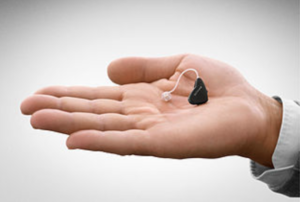Can Cold Weather Affect Hearing Aids?
When you’re looking for hearing aids or a hearing aid test, we at Platinum Hearing Aids are here to assist you. As your trusted Detroit hearing aid specialists, it’s our aim to provide comprehensive audiology care. Not only will we provide you with quality products, but we’ll give you all the support you need to ensure that your hearing remains at its highest level possible. To accomplish this, though, you’ll need to always take care of your aids and prevent them from being damaged. Unfortunately, now that we’re approaching the winter season, this can be trickier due to the cold weather.

The Effect of Cold Weather on Hearing Aids
If you wear a hearing aid or you’re considering one, you may be disappointed to hear that the cold weather can affect them. It’s not necessarily that the cold temperature itself that will damage it, but the condensation that occurs due to changes in temperature that can set into a hearing aid and harm it. It doesn’t even need to be snowing or raining for this to occur because moisture is present when there are extreme temperature changes. For example, you may be walking around outside in the freezing cold weather, but when you get back indoors, it could be 50-to-60 degrees warmer inside, which can form condensation on your hearing aids.
Signs That Your Hearing Aid May Have Been Damaged
Moisture can cause damage to your hearing aids by ruining the microphone and receiver and can also clog up the earmold tubing and sound. You’ll be able to notice that your aids have been damaged by spotting the following signs:
- The sound will either fade out or it will come and go.
- The hearing aid will cut out when there are loud noises.
- Sounds are often unclear.
- Static is commonly present when hearing anything.
Preventing Your Hearing Aids From Being Damaged
Moisture may be hard to avoid when it’s very cold out, but there are still some precautions that you can take to help keep your hearing aids in good working shape:
- You may want to purchase a dehumidifier or a hearing aid drying kit. You can remove the batteries and keep your hearing aid inside it every night.
- If it’s raining, use an umbrella. Also, make sure that your ears are covered when it’s snowing out.
- If your hearing aid gets wet at all, take the battery out immediately.
- You can purchase sweatbands or spandex covers to help keep them free of moisture.
Contact Your Detroit Hearing Aid Specialists!
If you have any further questions, please don’t hesitate to contact us and we’ll be glad to help in any way that we can. If you’re interested in scheduling an appointment with your Southfield and Allen Park audiologist for hearing aids or a hearing aid test, we encourage you to fill out our appointment request form or give us a call at (313) 381-4810. We can’t wait to hear from you!





